Detroit pay raise commission stacked with Mike Duggan, city council allies
- Oops!Something went wrong.Please try again later.
A Detroit commission crafting significant pay raises for Mayor Mike Duggan, Detroit Clerk Janice Winfrey and City Council members is stacked with people who have professional or financial ties to the city government or the same leaders receiving these salary hikes.
A Detroit Free Press investigation found a majority of the Detroit Elected Officials Compensation Commission — who are appointed by the mayor and confirmed by City Council — have potential conflicts that may create an appearance of impropriety and some prompt questions about whether their service violates state law or city code.
In February, all six commission members recommended raises. By the time the final pay bumps take effect, the Detroit mayor’s salary will be $65,000 more than the governor of Michigan, if the state post does not get any additional pay.
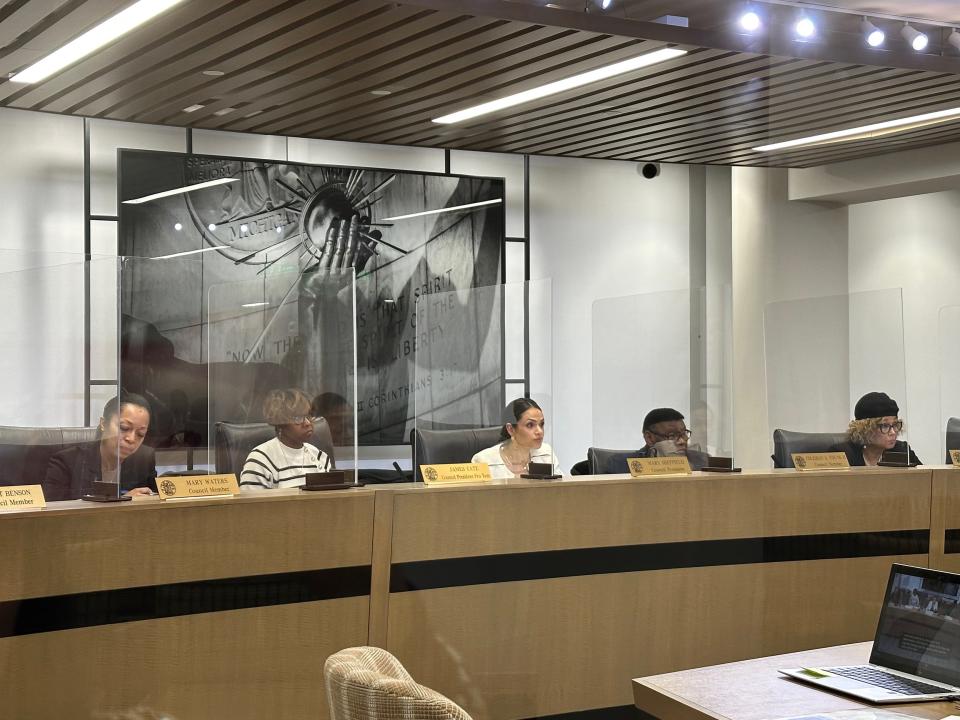
Council members already earn more than state lawmakers, and, after the raises, the Detroit city clerk’s salary will be $6,000 shy of what the Michigan secretary of state and Michigan attorney general earn currently.
“It does raise a red flag when people have personal connections, or they can benefit individuals that they know and work with. It becomes, I think, more compromised in the public eye,” said Russ Bellant, a longtime former Detroit Library Board commissioner and Duggan critic.
The Free Press found that the backgrounds of five of the six active members raise questions about their service:
One member helps run a media consulting business that received a six-figure contract from the City Council after she joined the commission. She's personally providing services to the city under the contract, according to the firm's chief executive officer. A few months later, she voted for pay raises.
Another commissioner ran a nonprofit until recently that partners with city departments and others to help allocate funds for development projects in several Detroit neighborhoods.
The commission chairperson is an attorney who states on her law firm's website that she is “is actively involved in representing Detroit Mayor Mike Duggan and numerous City of Detroit Councilpersons.” After joining the commission, she represented at least one then-council member in a legal matter related to the council member’s position.
Two members serve on public boards under the auspices of the state executive branch, including one on the powerful entity that oversees the operations of all Detroit casinos. This service is a potential violation of state and city laws governing who’s allowed to participate on compensation commissions.
Another member is Duggan’s former deputy mayor and previously worked as the city’s chief of police.
Duggan’s office defended the members of the commission, who are unpaid, arguing they serve to benefit the city and not themselves. But Conrad Mallett, Detroit’s corporation counsel, acknowledged there is no system in place to prevent members from engaging in conflicts or to catch potential law violations once that person joins a board.
After the Free Press contacted the mayor’s office with the findings, Mallett vowed reforms.
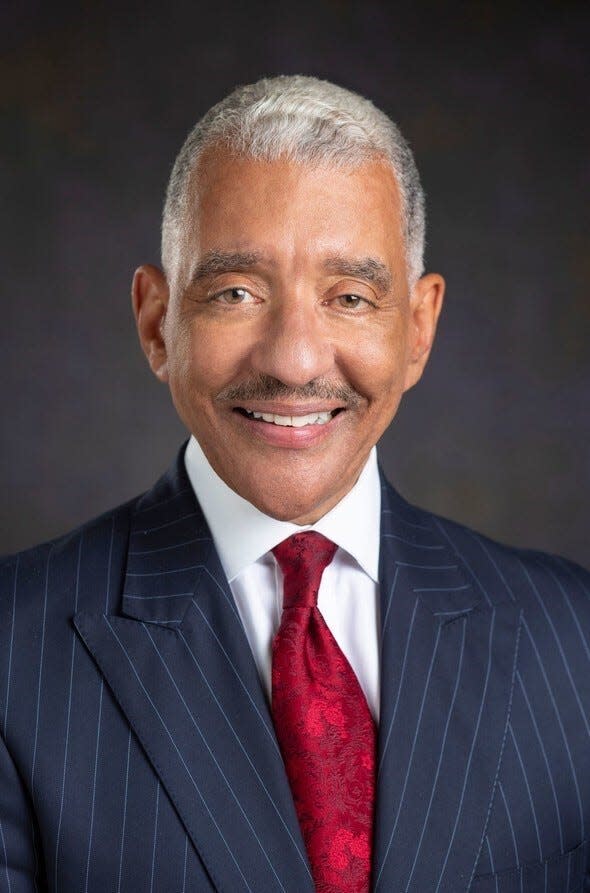
“These are men and women of a high degree of integrity, they understand the nature of the public responsibility that they’re undertaking. But I do think that in this climate, in this environment, an annual disclosure process actually would be helpful, and I think make everybody — the public, most particularly — comfortable that … nothing untoward has occurred and not have been reported, either by decision or accident,” Mallett said during a recent phone interview.
“I get it that the process could be improved, and we’re going to.”
Changes are necessary to ensure residents can trust this process, said John Chamberlin, a professor emeritus of political science at the University of Michigan whose research focused on ethics in public policy.
"The citizens of Detroit should think this looks a little bit fixed,” Chamberlin said.
The Free Press found at least two Detroit City Council members tried to flag potential conflicts in 2021 for candidates who later joined the commission. Roy McCalister Jr., a councilman at the time, asked the Detroit Board of Ethics to weigh in.
“My concern was putting people on that board who had interests or some type of contact with the city of Detroit. And what I did not want was for them to have a point where they would lean toward something but then come back and say we gave you this raise, so now we’re looking at this,” McCalister recently told the Free Press.
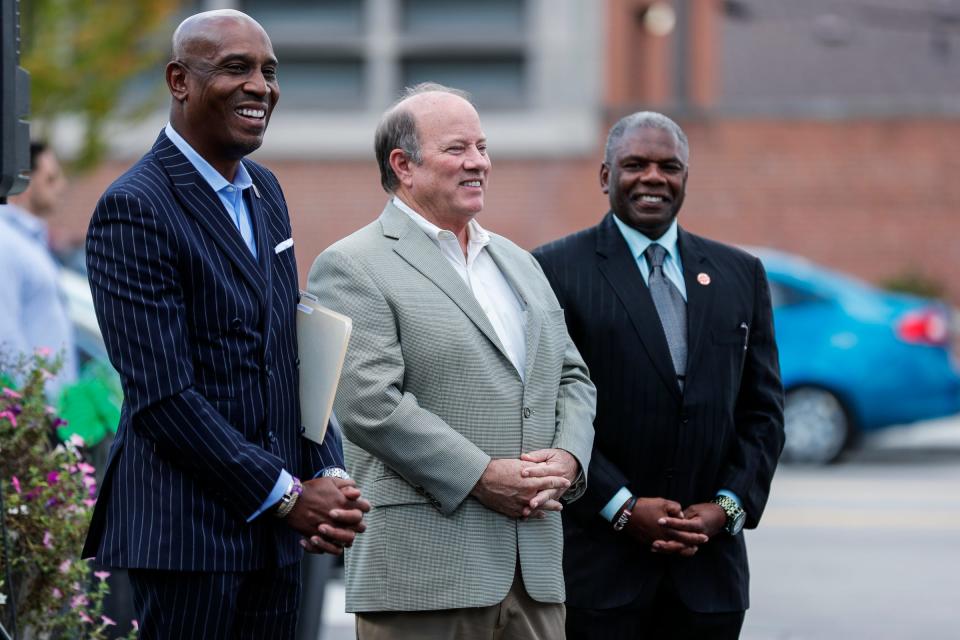
“I did not want anybody being a part of being something that was going to benefit councilmembers but also benefit them.”
But the Board of Ethics leader told McCalister at the time that the board did not have the resources to verify specific possible ethical conflicts for city appointees, according to documents obtained through a Michigan Freedom of Information Act request.
“As a practical matter, the BOE does not have the resources to conduct investigations into the relationships of so many people … we cannot perform wide-ranging background checks akin to the FBI,” wrote Board of Ethics Chairperson Kristin Lusn, according to a letter provided through the FOIA request.
“There is no way for us as a board to investigate any and all potential conflicts.”
More: Detroit panel rejects pay raises elected officials sought, OKs 3.5% hike instead
More: Detroit City Council OKs $156.5M surplus spending, pay raises for elected officials
'Take some of the politics out of it'
City Council recently voted 5-0 to adopt recommendations from the commission that included immediate 7% increases for the mayor, City Council and the city clerk; four council members were absent. The officials also will receive 3.5% raises at the start of every new financial year through 2025.
At the start of this year, the mayor made $189,300 and the average council member made $89,547. By the end of this raise, the mayor will make $224,571. Council members and Winfrey are set to take home $106,232 annually. The council president will earn slightly more.

To be clear, others working for the city have received raises. In November, the city and unions representing Detroit police agreed to a new five-year contract that included both one-time raises and percentage raises through the 2026 financial year. Firefighters and other city employees are set to receive smaller raises.
The compensation commission evaluated the financial position of the city and how salaries of similar leaders in other places stack up with Detroit pay rates before making a recommendation to council. Commissions can suggest pay cuts or increases, but in Detroit’s recent history, the commission has repeatedly recommended hikes.
This time around, five council members and Winfrey asked commissioners for sizable raises, seeking six-figure salaries. Commissioners instead responded with a smaller series of proposed increases.
While cities are not required to have compensation commissions, Detroit and at least 12 other Michigan cities created them in accordance with state law.
Every member is appointed by a mayor. In Detroit, Mallett said no board or commission positions are publicly posted before they are filled.
“These are important positions and volunteers are necessary to do the work of government. Nevertheless, there’s a certain amount of decorum that’s required, dedication to the process and the work that the commission is assigned,” Mallett said.
“Because of the close connectivity to the government itself, in many instances knowing who the participants are simply gives confidence to both the legislative branch and the executive branch that the process is being managed well.”
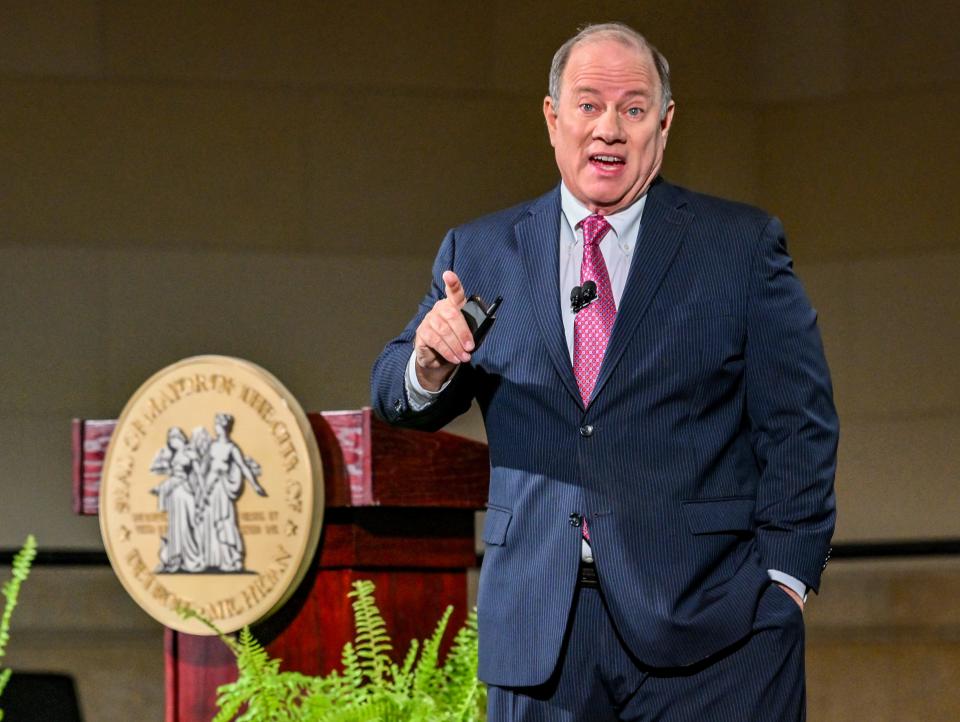
State law is specific on who can serve on these elected official compensation commissions: They must be registered voters in the affected city, and they cannot be “a member or employee of the legislative, judicial, or executive branch of government or a member of the immediate family of a member or employee of the legislative, judicial, or executive branch of government.”
Detroit city code is more detailed. It has the same prohibitions as state law but also explicitly bans members or employees of “any level of government” from serving on the commission.
The law does not specifically mention contractors or other financial relationships with the city. But Chris Johnson, general counsel for the Michigan Municipal League, explained his view of the state law.
“It’s basically saying anybody that’s got an actual fiduciary or immediate interest in the matter shouldn’t serve on the commission,” said Johnson, a lawyer for the organization that represents cities, townships and other municipalities.
Even if commission members are deemed ineligible to serve, it’s highly unlikely any actions taken by the commission would be reversed without a court order, Johnson said.
Asked whether there were problems with commission members also leading organizations that receive large amounts of city funding, Johnson said, “I would think that would be unusual, to be honest.”
“What the compensation commission is trying to do is take some of the politics out of it,” he said.
A contract and a partnership
Two of the commissioners Duggan appointed lead or led organizations with ongoing ties to city government at the time they approved raises.
Tiffany Jackson was appointed to the commission in 2021. She’s chief operations officer for Ignition Media Group, a firm that offers marketing help and many other services. It’s led by Dennis Archer Jr., a prominent businessman and son of Dennis Archer, the former Detroit mayor. Her biography says she has an extensive background consulting in the public and private sectors, specializing in governmental affairs, among many other interest areas.
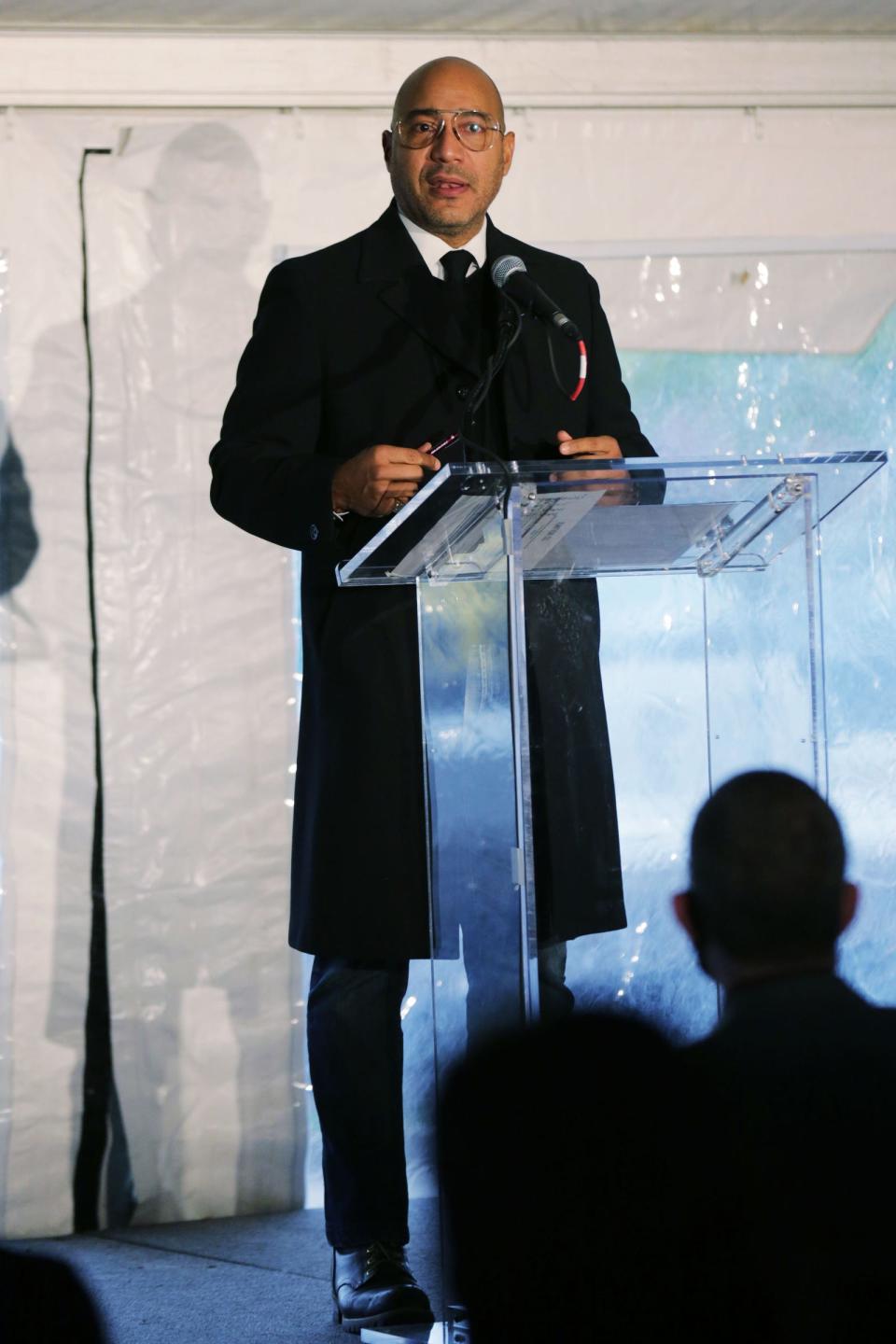
In 2021, McCalister raised concerns about her nomination. Council still voted to put her on the commission.
In October 2022, council awarded Ignition Media Group a $150,000 contract to provide marketing services for Detroit in connection with the adult-use marijuana licensing program.
On a city document, Jackson is listed as the company contact and supplier.
Jackson declined to answer Free Press questions. She referred comment to a Duggan spokesman.
Archer told the Free Press that Jackson is not a supplier, but she does serve as the company's contact on the contract. She also provides services to the city under the terms of the contract, he said.
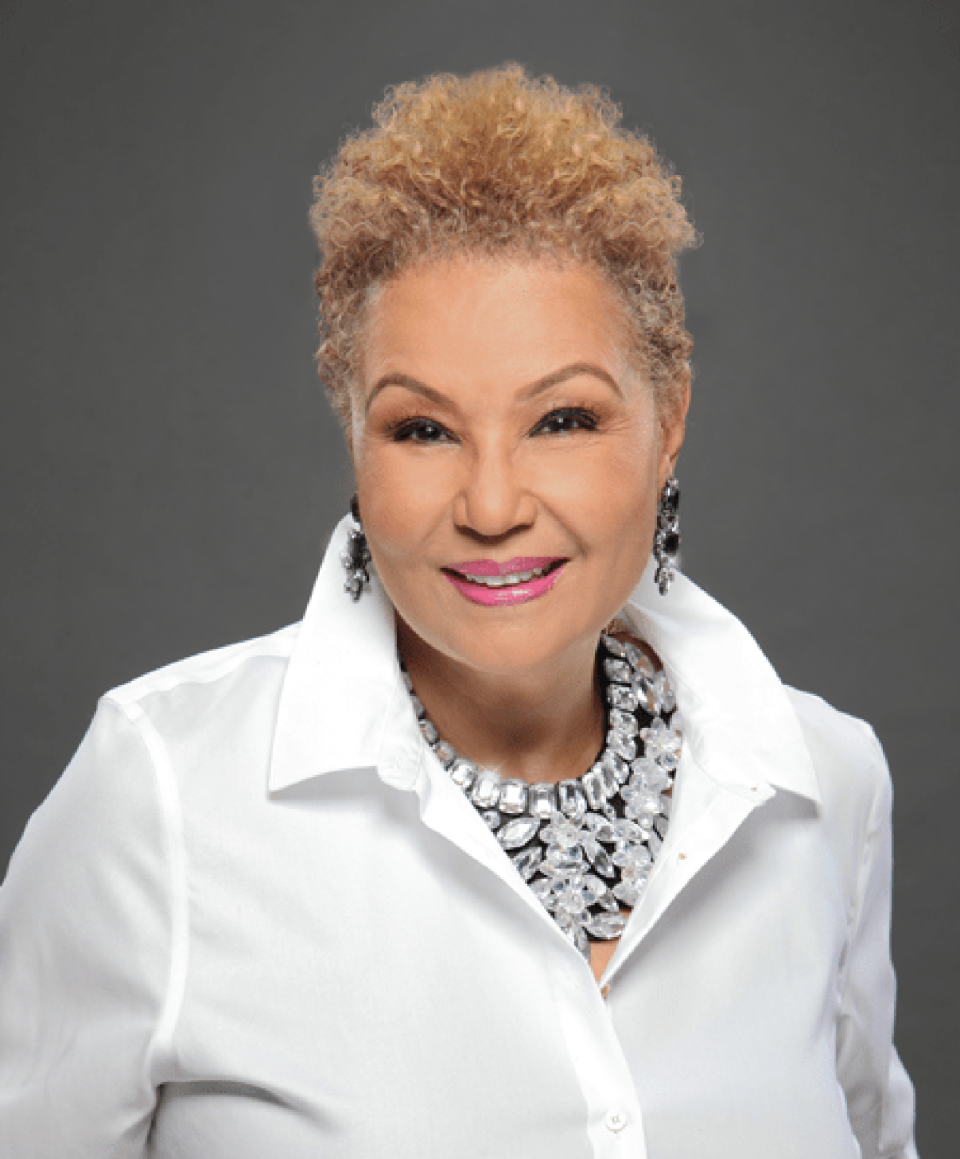
Commissioner Geneva Williams, until recently, was the executive director of the Live6 Alliance, a nonprofit aimed at improving the area around Livernois Avenue and West McNichols Road. The alliance was created through a public-private partnership in 2015. It continues to work on projects that receive at least some help and funding from the city, according to city documents and alliance reports.
Duggan appointed Williams to the commission on Aug. 30, 2021. A few weeks later, Duggan joined Williams at a ribbon-cutting ceremony for the $7 million West McNichols streetscape, a project spearheaded by Williams’ organization but funded with the help of the city.
"This is what happens when city government partners with residents, businesses and other institutions, like Live6 Alliance, to develop investment strategies that benefit everyone,” Duggan said at the time, according to a Live6 impact report.

After Williams’ nomination to the commission, at least one council member asked whether her ties to the city were a conflict.
“Now, in this hyper-sensitive world that we’re in right now, where folks are always looking for — or ensuring, which we should, transparency and making sure everything is aboveboard and ethical … I want to make sure that we thought about the things that we should think about now as opposed to later,” said Council Member James Tate during a 2021 committee meeting, while questioning Williams, according to a video recording.
She told him she didn’t have any conflicts; two weeks later, she joined Duggan at the ribbon-cutting ceremony.
In several emails to the Free Press, Williams defended her actions.
“First and foremost, I have no disqualifying conflicts of interest that would call into question my eligibility to serve on the commission,” Williams said in an email.
“I've never felt in conflict with my many service and community assignments, nor have I ever shown favoritism. In my various roles, including many appointments with local and state administrations, my mission has been to support efforts to make our community a better place to live. I have always been dedicated to working for the benefit of the people, not for personal gain. The funding nonprofits receive, including any dollars coming through the city, serves a public purpose and benefits broad constituencies rather than individuals.”
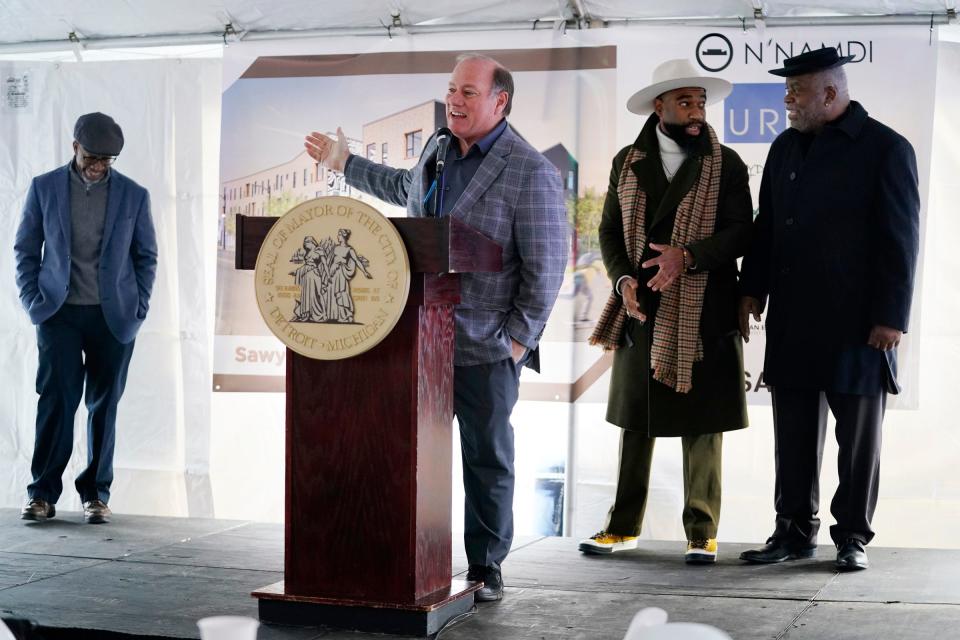
She said she no longer serves as the leader of the Detroit nonprofit, instead serving as a “strategic adviser.” After the Free Press sent questions to Williams and Live6, she no longer appeared on the staff webpage.
Caitlin Murphy is the interim executive director for the alliance. While Murphy said most of the money the organization receives comes through private foundations, the alliance frequently partners with the city planning department and other city entities to distribute that money to projects in their area.
She estimated the alliance has received about $50,000 from the Strategic Neighborhood Fund, a pot of private and public money intended to spur economic development in Detroit.
The mayor’s lawyer
Angela Baldwin leads the commission. She’s a lawyer with Miller Law, but before joining the firm in 2018 she served as assistant corporation counsel for the city of Detroit, according to the resume provided to the city after Duggan appointed her to the commission in 2019.
The resume stated she worked with the city and council on issues ranging from constitutional claims to the Detroit bankruptcy.
Several years after joining the commission, she took on at least one notable client through her legal job: a sitting Detroit City Council member, according to court records.
Wayne County Circuit Court records indicate in 2021 Baldwin and another attorney worked for then-Council Member Janee Ayers, as Ayers tried to fend off an effort to prevent her name from appearing on the next election ballot. Baldwin worked on this and other cases with Miller Law colleague Melvin "Butch" Hollowell, the former corporation counsel for Detroit and Duggan prior to joining the firm.
That’s not the only work the firm provided to a prominent Detroit politician.
Campaign finance records also show Duggan paid Miller Law more than $52,000 in legal and general consulting fees from July 2019 through August 2021. The mayor nominated Baldwin for the compensation commission about two months after the July payment to Miller Law, records show.
“My firm briefly provided some counsel to the mayor’s candidate committee, and one city councilperson’s candidate committee, but not in their official capacities, and that work ended years ago. I was not at any time during my tenure on the (elected officials compensation commission) a member of any governmental branch,” Baldwin said.
At the time council reviewed her appointment to the compensation commission, her resume did not say she currently represented Duggan or council. But as of this week, her profile page on the Miller Law website states she is “actively involved in representing Detroit Mayor Mike Duggan and numerous City of Detroit Councilpersons, Judges, State Legislators, County Commissioners, as well as Michigan Governor Whitmer (General Counsel to Gubernatorial campaign), Michigan Attorney General Dana Nessel (Transition Team), and cities and counties across the state.”
Of the 14 law firms that contract with the city, Miller Law is not one of them, nor has there been a recently expired contract with the firm, Duggan spokeswoman Corey McIsaac said.
‘That’s definitely a gray area’
Williams and another commissioner member, Joni Thrower, serve on state boards that may make them ineligible to serve on the compensation commission. While Williams serves on the Michigan Women’s Commission, an entity with important duties but less financial sway, Thrower is a leader on the powerful entity that oversees all Detroit casinos.

Former Mayor Dave Bing first appointed Thrower to the compensation commission, and she was later reappointed by Duggan. A well-known entrepreneur and lawyer, Thrower also served on Bing’s crisis turnaround team. Her LinkedIn page says she had a similar role with Duggan, although the timing of that appointment is unclear.
She currently serves on the Michigan Gaming Control Board, a state entity that oversees regulations and operations of Detroit casinos and correlated gambling. The board is under the auspices of the Michigan Department of the Treasury, part of the executive branch of the state.
Members of that board receive reimbursement for expenses. But starting in 2024, they’ll also receive $1,000 for every meeting attended, according to state law.
Thrower did not respond to emails seeking comment.
Mallett said serving as a member on a state board or commission did not make that person a member of state government.
“The way we interpret the restriction, really is on the persons who are employees, the persons who ... have a direct reporting responsibility to some state official. Members of these boards and commissions, state or local, they are bound by their oath. They are not bound by some supervisor's expectations,” Mallett said.
The Municipal League’s Johnson agreed that not every member of a state board or commission would be a member of government in violation of laws governing compensation commissions. But some might.
“That’s definitely a gray area,” Johnson said.
Mallett agreed once a person starts getting paid, the arrangement could conflict with the laws.
Isaiah “Ike” McKinnon served as Duggan’s deputy mayor from 2013 through June 2016, a role he assumed after leading the police department for years. He was appointed to the compensation commission in 2017. He served on the Detroit Financial Review Commission, created in the wake of the city’s bankruptcy, at the same time he worked on the compensation commission.
In a brief phone interview, McKinnon said he does not believe he has any disqualifying conflicts. He believes he was asked to serve on the compensation commission by Stephanie Washington — recently appointed as Duggan's chief of staff, she has worked with the administration since Duggan took office in 2014, according to the city.
"The context, with contracts and things like that, it's surprising. Those are things I obviously didn't know," McKinnon said, referring to the Free Press findings.
Rhonda Willis is the final member of the commission. A human resources professional first appointed by Bing, she did not appear to have obvious conflicts.
Duggan spokesman John Roach defended the commissioners, noting council needed to approve their appointments before they could serve. But he did not address some of the specific potential conflicts.
“Quality individuals serving on a commission like this will have extensive experience in the community. That community experience is not a legal conflict. Each member of the (elected officials compensation commission) has demonstrated their integrity and professionalism over years of service,” he said.
Mallett suggested new reforms, spurred by Free Press reporting, will require ethics statements for all members of boards and commission. He anticipates board members signing forms vowing they are not engaging in conflicts rendering them ineligible to serve.
If Mallett or the administration learned the person provided incorrect information on the form, he said the administration would call for their resignation.
Mystery commission member
The seventh spot on the commission is a bit of a mystery. While only six commissioners voted on the pay raise proposal, and Roach said the commission has six people currently, multiple records indicate several people may have recently filled that seventh post.
A 2017 city resolution indicates Meagan Dunn was appointed to a term that would end in 2024. But Dunn, recently named the new leader of Covenant House Michigan, an organization that helps young people who are experiencing homelessness, is not listed as a member on the commission website. She did not respond to Free Press questions.
Other city records, including the commission’s official website and graphics that appeared on the livestream of at least one commission meeting, point to a different person.
The name listed is Maurice Morton, a lawyer and owner of a recreational marijuana business in Detroit. He has a clear connection to Duggan: When Duggan served as Wayne County prosecutor, Morton was his chief deputy. The same year Duggan left to take over leadership at the Detroit Medical Center, Morton also joined the DMC as associate general counsel and director of community affairs, according to a 2014 article in the Michigan Chronicle.

Morton said in an email to the Free Press he is not on the commission and has never served with the entity.
Morton was nominated at some point in the fall of 2021. Almost immediately, council members raised questions about conflicts.
During a meeting of the Internal Operations Standing Committee at the time, McCalister appeared to indicate he could not support Morton’s appointment without further information.
“I will tell you that I do have a concern, and that concern was brought up by Member Tate. I have written a memo to the Board of Ethics and some other departments as far as making sure that there is no conflicts and there is no issues with you being in this position,” McCalister told Morton, according to archived video of the meeting.
“Your credentials as have been stated is outstanding, but I do have a concern regarding the other involvements that you were involved with, as well as the personnel.”
McCalister appeared to indicate he could not support Morton’s appointment without further information.
During meetings of this committee, Tate said he planned to ask every commission nominee about conflicts. He also said he had to ask the Board of Ethics about potentially disqualifying conflicts.
Tate, now City Council president pro tempore, did not respond to repeated requests for comment. It’s unclear whether he ever asked the board about conflicts, although the board’s FOIA response to the Free Press did not include any request from him.
The Free Press filed a FOIA request with the board for any materials related to who could serve on the commission. Although the Free Press submitted the request 18 days before the final pay raise vote by City Council, officials did not respond with documents until March 17, beyond the amount of time allotted under state law and 17 days after council approved raises.
In a letter to the Board of Ethics, McCalister asked about conflicts involving Morton and Jackson. Jackson eventually joined the board and the company she helps lead received that council-approved six-figure contract months before she voted to approve raises.
“The question that I raise is if there are any ethical conflicts with Mr. Morton’s and Ms. Jackson’s previous relationships and connection with city employees and the possibility of sitting in a position to recommend wage changes for those same employees?” McCalister wrote, adding he thought both were qualified and had long histories with Detroit elected leaders and officials.
The ethics board essentially told McCalister it could not help him.
Lusn, the board chairperson, said any board advisory opinion is not allowed under the city charter to name any officials under scrutiny and the board could not conduct background checks on appointees.
“I would suggest you direct the candidates to the ethics ordinance. Perhaps you could accomplish your goal by asking commissioners to submit letters that acknowledge the rules and attest to the absence of conflict,” Lusn said.
Free Press staff writer ML Elrick contributed to this report.
Dave Boucher is an investigative reporter for the Free Press. Contact: dboucher@freepress.com. Follow him on Twitter @Dave_Boucher1. Dana Afana is the Detroit city hall reporter for the Free Press. Contact: dafana@freepress.com or 313-635-3491. Follow her on Twitter: @DanaAfan
This article originally appeared on Detroit Free Press: Detroit pay raise commission stacked with Duggan, City Council allies

